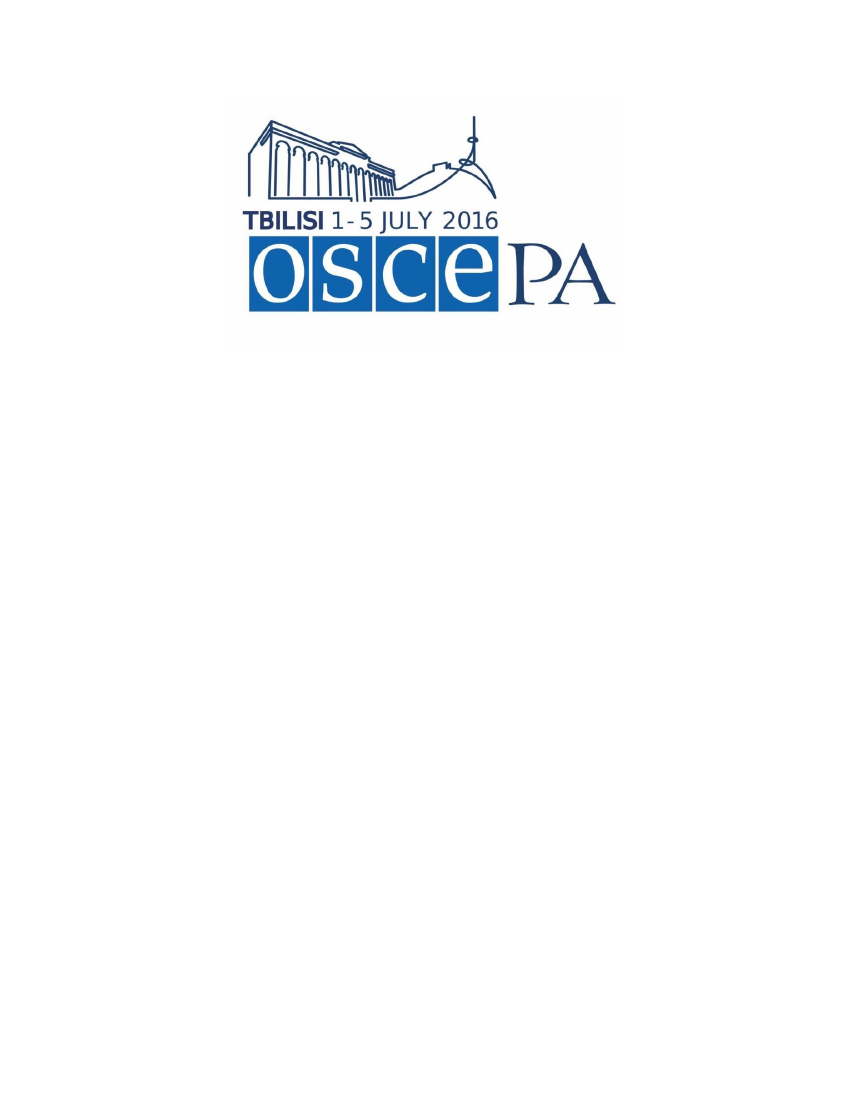
AS (16) RP 3 E
Original: English
REPORT
FOR THE GENERAL COMMITTEE ON
DEMOCRACY, HUMAN RIGHTS AND
HUMANITARIAN QUESTIONS
25 Years of Parliamentary Co-operation:
Building Trust Through Dialogue
RAPPORTEUR
Ms. Gordana Comic
Serbia
TBILISI, 1 – 5 JULY 2016